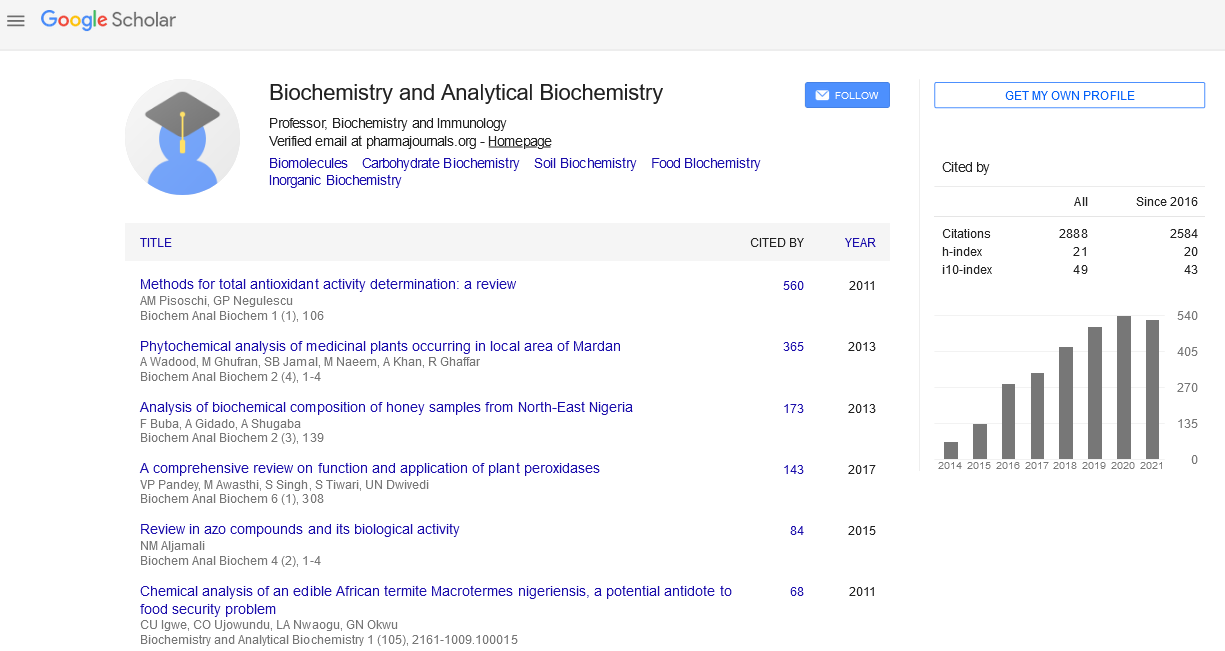Indexed In
- Open J Gate
- Genamics JournalSeek
- ResearchBible
- RefSeek
- Directory of Research Journal Indexing (DRJI)
- Hamdard University
- EBSCO A-Z
- OCLC- WorldCat
- Scholarsteer
- Publons
- MIAR
- Euro Pub
- Google Scholar
Useful Links
Share This Page
Journal Flyer

Open Access Journals
- Agri and Aquaculture
- Biochemistry
- Bioinformatics & Systems Biology
- Business & Management
- Chemistry
- Clinical Sciences
- Engineering
- Food & Nutrition
- General Science
- Genetics & Molecular Biology
- Immunology & Microbiology
- Medical Sciences
- Neuroscience & Psychology
- Nursing & Health Care
- Pharmaceutical Sciences
Abstract
Antioxidant Status of Formulated Drugs Against Typhoid
Background: Typhoid fever (TF) is a global health problem of developing countries which is caused by Salmonella. Salmonella are facultative intra-cellular gram negative bacteria and can survive during certain stages of host parasite interaction. Most of the drugs are resistant now a days that has complicated its management, thus it has necessitated the search of formulated drugs for its treatments. Nitric oxide (NO) is a versatile molecule produced in a biological system. Previous studies have suggested that exogenous administration of L-arginine results in increased NO production, indicating that endogenous substrate is insufficient for maximal NO production. Taking these facts into consideration, it was thought pertinent to see the effect of oral administration of NO donors i.e. L-Arginine along with the low doses of antibiotic (ciprofloxacin).
Results and Discussion: On day 11, the treatment of mice with L-arginine, ciprofloxacin and their combination, the GSH level was increased by 20.83%, 27.08%, 29.10% and 20.83% in S.typhimurium infected mice as compared with control, and the GPx activity was significantly increased by 9.92%, 4.60%, 6.02% and 3.54% as compared with control.


